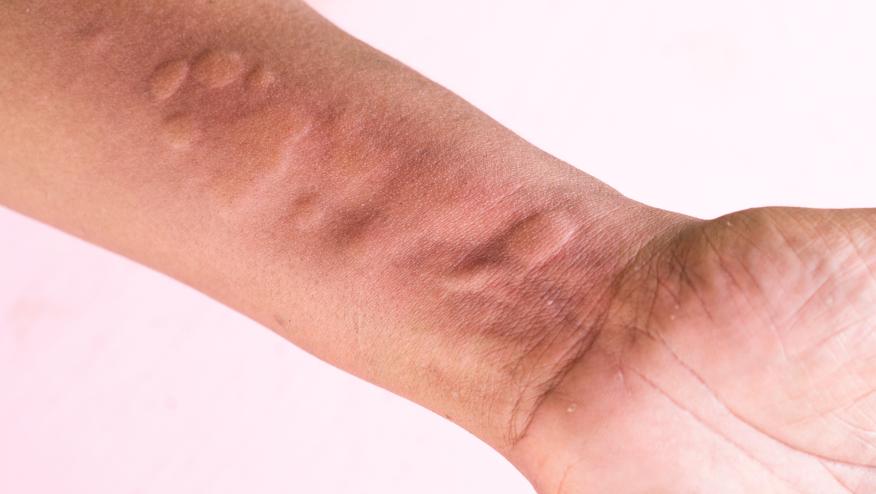Urticarial Vasculitis Overview Save

Urticarial vasculitis is rare and the causes often go undiagnosed. A Medscape recent overview highlights key features in the diagnosis and management of this rare disorder.
Urticarial vasculitis is often chronic, or recurrent, accompanied by a painful or burning sensation. The wheals or erythematous plaques, may have central clearing, may be associated with petechiae or resolve with ecchymoses or postinflammatory hyperpigmentation. Associated features may include arthralgia, angioedema (40%), fever, abdominal pain, dyspnea, and pleural and pericardial effusions.
Urticarial vasculitis may be:
- Drug induced - related to ACE inhibitors, penicillin, sulfonamides, fluoxetine, cimetidine, diltiazem, thiazides, potassium iodide, NSAIDs
Rheumatic disease - associated with SLE, Sjögren syndrome, or the monoclonal gammopathies, mixed cryoglobulins, and hematologic and solid malignancies
Viral infections, such as hepatitis B, hepatitis C, and infectious mononucleosis
Urticarial vasculitis may be hypocomplementemic and normocomplementemic; with the latter being less likely to be associated with autoimmune conditions.
With hypocomplementemic urticarial vasculitis its important to obtain a biopsy and to exclude lupus as the underlying cause. As many as 71% of patients with hypocomplementemic urticarial vasculitis have a positive ANA but do not fulfill criteria for the diagnosis of SLE. Some may have immunoglobulin G antibodies to C1q. Individuals with these antibodies have a higher incidence of angioedema, ocular inflammation, glomerulonephritis, and obstructive pulmonary disease.
Biopsy is helpful in distinguishing urticarial vasculitis from chronic spontaneous urticaria (CSU).
Treatment is symptomatic in many as only those with organ involvement (Pulmonary, Renal) have a significant mortality risk. There are no proven or FDA approved agents specifically for the treatment of urticarial vasculitis. Many can be simply managed with NSAIDs or prednisone. Case reports suggest that first line therapy may include either antibiotics, dapsone, colchicine, or hydroxychloroquine for mild cutaneous disease.
Refractpry cases have been managed with immunosuppressives (ie, methotrexate, mycophenolate mofetil, azathioprine, and cyclosporine), corticosteroids, and even biologic therapies (interleukin-1 inhibitors).










If you are a health practitioner, you may Login/Register to comment.
Due to the nature of these comment forums, only health practitioners are allowed to comment at this time.